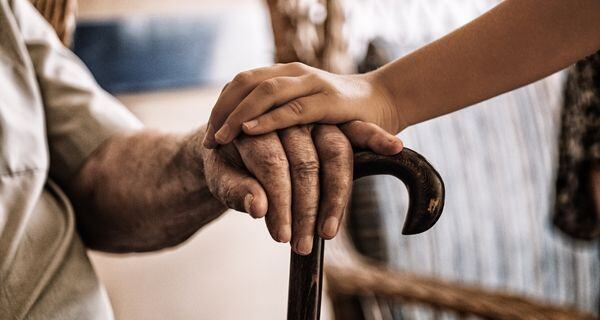The majority of Alzheimer’s cases, the most common form of dementia, occurs in people over age 65. In about five percent of cases, however, individuals develop Alzheimer’s in their 30s, 40s, or 50s and are diagnosed with early-onset Alzheimer’s.
There are many questions surrounding early-onset Alzheimer’s. How is it different from late-onset Alzheimer’s disease? What are its symptoms? How is it diagnosed and treated? How can caregivers manage? Find answers to these questions and more in this blog curated by The Bristal Assisted Living team.
Types of Early-Onset Alzheimer’s
There are two main types of early-onset Alzheimer’s: common and genetic. Although they are similar, there are a few differences between the two types.
- Common Alzheimer’s: Individuals living with common early-onset Alzheimer’s typically follow a similar progression as those diagnosed over age 65.
- Genetic or Familial Alzheimer’s: While rare, people living with genetic early-onset Alzheimer’s are thought to inherit gene mutations through several generations of family members affected by the same disease.
Symptoms of Early-Onset Alzheimer’s
The symptoms of early-onset Alzheimer’s can be similar to those diagnosed later in life. Still, other unique characteristics often present themselves to adults younger than age 65.
Atypical symptoms include:
- Visual symptoms like tunnel vision, impaired depth perception, or the inability to recognize faces
- Impaired speech that includes difficulty finding the right words
- Impaired problem-solving skills
- Impulsive behaviors
Symptoms that are also associated with late-onset Alzheimer’s disease include:
- Memory loss that disrupts daily life
- Impaired gait or movement
- Confusion with time or place
- Problems with simple mathematical tasks
- Oral and written language difficulties
- Decreased or poor judgment
- Withdrawal from work or social activities
- Mood and personality changes
Diagnosis of Early-Onset Alzheimer’s
It’s important to talk to your doctor if you or a loved one are experiencing any of these symptoms. Write down what patterns you’re noticing and the frequency of the symptoms.
The first appointment will likely involve a thorough physical examination, a review of your medical history and recent symptoms, and an interview with someone who knows you well. Depending upon the results of this initial examination, the doctor may order tests or refer you to other doctors who specialize in Alzheimer’s disease.
According to the Mayo Clinic, probable next steps may include:
- Cognitive and neuropsychological tests
- Neurological evaluations
- Brain imaging tests using an MRI, CT, or PET scan
- Laboratory tests
- Psychiatric evaluations
Treatment of Early-Onset Alzheimer’s
Although there is no cure for most types of dementia, including early-onset Alzheimer’s, there are ways to reduce the severity and slow down the progression of the condition.

One method is to boost brain health through physical activity, mental activity, an active social life, stress reduction, and a healthy diet. Some methods are pharmaceutical. Doctors may prescribe certain drugs to help with memory loss, as well as depression, anxiety, and sleep disturbances which are commonly associated with Alzheimer’s disease.
Related: 7 Helpful Relaxation Techniques for People with Dementia >>
Guidance for Caregivers
The best thing caregivers can do is arm themselves with knowledge. It’s often helpful to learn everything you can about early-onset Alzheimer’s, ways to cope, and what help is available.
By developing a better understanding of early-onset Alzheimer’s disease and taking advantage of a support network, you will be better equipped to help yourself and your loved one cope with this condition.
Related: Understanding the Stages of Alzheimer’s Disease >>
If you are looking for a support network, check out Our Place Memory Café. Its get-togethers are designed for people living with dementia and their caregivers. It is often comforting and useful for caregivers to meet and share experiences with others in similar situations.
Download Your Free Caregiver Resource Guide
Find more information and tips for caregivers in our free resource, A Caregiver’s Guide to Alzheimer’s Disease and Dementia. This guide includes more than 20 pages of information to help you prepare and care for a loved one living with Alzheimer’s or dementia.




